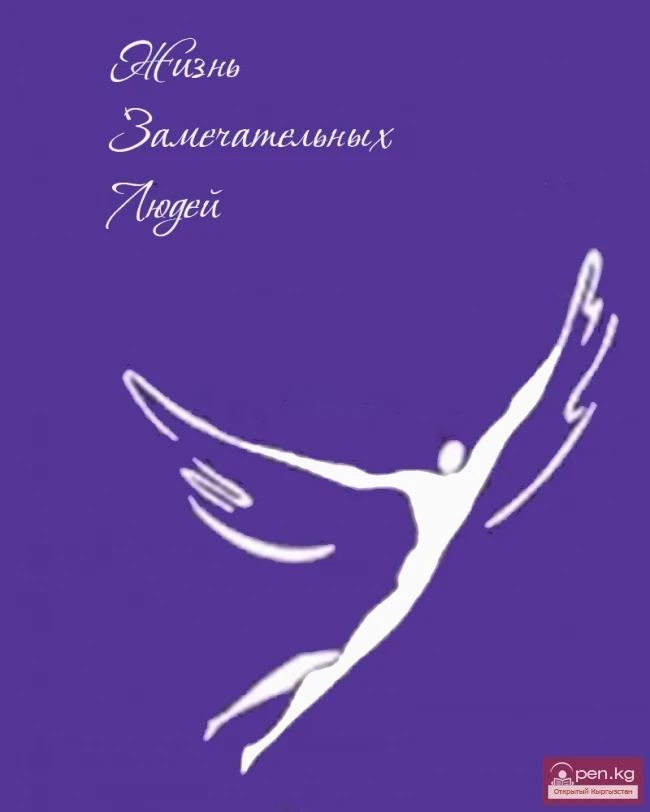Prose Writer, Poet, Journalist Sydyk Karachev
Prose writer, poet, journalist S. Karachev was born in 1900—1937 in the village of Jiluu-Bulak, now in the Tyup district of the Issyk-Kul region, in a family of a poor peasant. He received his initial education in a Tatar school in the city of Karakol (now Przhevalsk). From 1921 to 1923, he studied at the military school named after V. I. Lenin in Tashkent. In 1918, he joined the Red Guards under the command of Mambet Suymbaev and actively participated in the fight against the White Guards in the areas of Ak-Suu, Lepsey, and Cherkessk. In 1920, as part of the Red Army, he took part in the overthrow of the Bukhara Emirate. From 1923, he worked in the union of Kyrgyz poor and laborers "Kopii." In 1924, S. Karachev was appointed the first responsible secretary of the first Kyrgyz newspaper "Erkin-Too." In the following years, he worked in the editorial office of the newspaper "Kyzyl Kyrgyzstan," in Kirgosizdat as a literary employee and editor.
S. Karachev began writing poetry and composing stories in the Tatar language. In 1918, he published poems about Lenin in the Tatar newspaper "Shura." He regularly published from 1919 in the printed organs of the Semirechye Revolutionary Committee "Kemek," "Tilshi," in the organs of the Turkestan Communist Party (B)—the newspaper "Ak zhol," and in magazines such as "Cholpon," "Zhas kairat," and others. Many of his poems were published in the pages of the newspaper "Erkin-Too." He is one of the founders of Kyrgyz professional prose. In 1919, his novellas "Not Reaching the Beloved" ("Suygenuне кошула албады"), "Refused to Marry" ("Уйленуу-ден качты"), and stories "Unfortunate Lovers" ("Армандуу эки жаш"), "Cuckoo and Zeynep," "On the Shores of Issyk-Kul" ("Ысык-Кел боюнда") were published in the Kazakh language in the newspaper "Kemek." His novellas written in the 1930s, "In Days of Captivity" ("Эриксиз кундерде"), "On the Dawn of Freedom" ("Эрик тацында"), and the play "On the Path of Equality" ("Тецдик жолунда") reflected the essence of the socialist transformation of the collective farm system in the village at a high ideological and artistic level. S. Karachev was one of the first translators of examples of world and Russian classics into the Kyrgyz language. He translated the novellas of A. S. Pushkin "Dubrovsky," "The Stationmaster," the novel by N. A. Ostrovsky "How the Steel Was Tempered," excerpts from the novel "Jean-Christophe" by R. Rolland, as well as some stories by L. N. Tolstoy, A. P. Chekhov, and numerous publications of socio-political literature.
S. Karachev was unjustly repressed in 1937 and posthumously rehabilitated after the XX Congress of the CPSU.
SEPARATE PUBLICATIONS
in the Kyrgyz language
Tendik zholunda: A short story. — F.: Kyrgyzmambas, 1928.—40 pages. On the Path of Equality.
Erksiz kunderde: A short story. — F.: Kyrgyzmambas, 1928.— 104 pages. Days in Captivity.
Ter aga Zeynep: A 3-act, 15-illustration play. — F.: Kyrgyzmambas, 1929, —32 pages. Zeynep — the chairwoman.
Eirik tazynda: A short story. — F.: Kyrgyzmambas, 1929.— 34 pages. On the Dawn of Freedom.
Eirik tazynda: Novellas, poems, translations. — F.: Kyrgyzstan, 1967, —259 pages. The Dawn of Freedom.
Read also:

Summer Camp American School
Representation of the Summer Camp American School Location: Tamchy village Accommodation: 4-6...
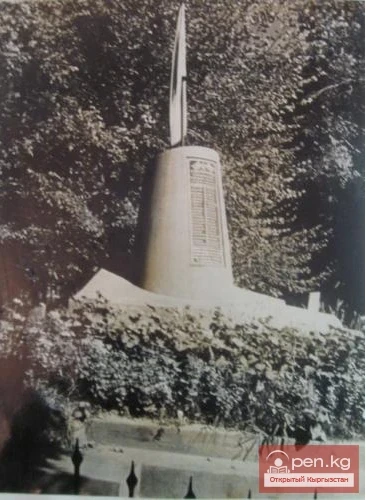
Meetings of the Ugrovoenrevkom of the city of Pishpek. Documents No. 46 - No. 47. (1919 - 1920)
FROM THE MINUTES OF THE MEETING OF THE PISHPEK UGORKOM OF RCP(b) ON THE ARRANGEMENT OF THE...
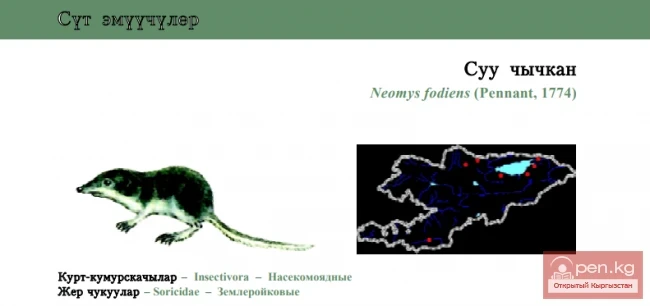
Common Water Shrew / Eurasian Water Shrew
Common Water Shrew Status: Category VI, Near Threatened, NT: R. A rare species for Kyrgyzstan,...
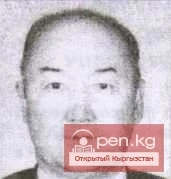
Erkin Kaparovich Boronbaev (1947)
Boronbaev Erkin Kaparovich (1947), Candidate of Technical Sciences (1979), Professor (1995)....
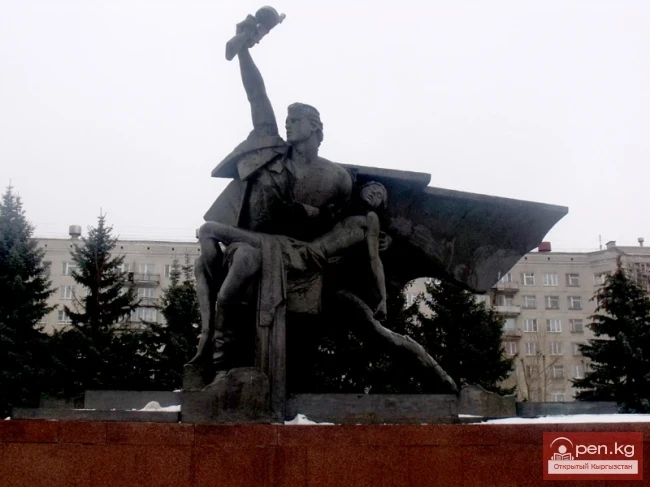
The names of 40 warriors from Kyrgyzstan who went missing during the Great Patriotic War have been restored.
In Russia, the names of 40 Kyrgyzstani soldiers, who were considered missing during the war, have...
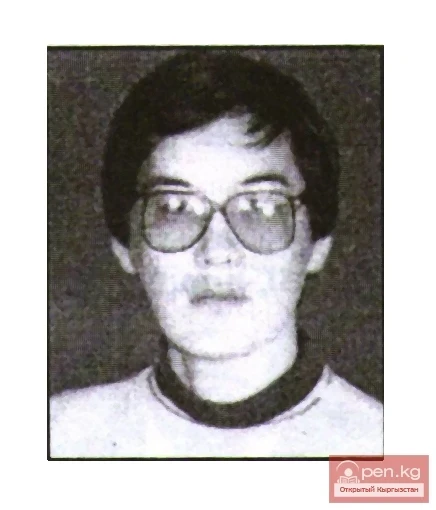
Erkin Shakirovich Alymbaev (1962) — Doctor of Medical Sciences (2001)
Alymbaev Erkin Shakirovich (1962), Doctor of Medical Sciences (2001)...
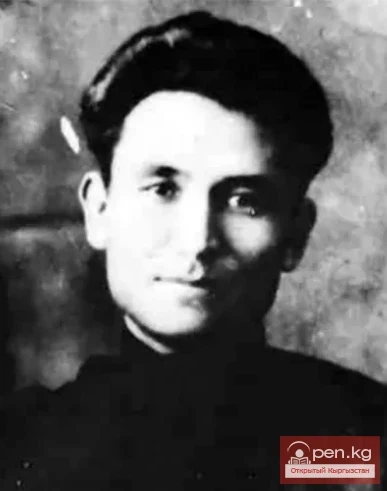
Torokul Aitmatov
Torokul Aitmatov (1903 - 1938) Born in aul No. 5 (Sheker) of the Kukuryevskaya volost of the...
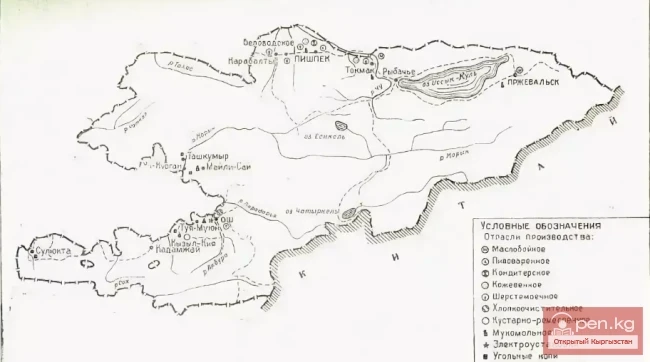
The Industry of Kyrgyzstan within the Russian Empire
The Industry of Kyrgyzstan in the Territory of Turkestan In the early 1890s, intensive exploration...
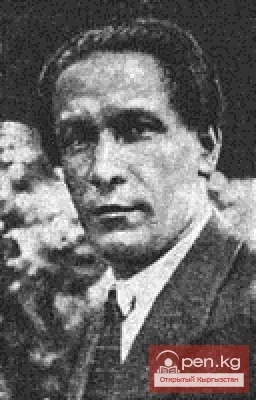
Witz Bela
Uitz Bela (1887-1972) Monumentalist. Outstanding Hungarian artist. He lived and worked in...
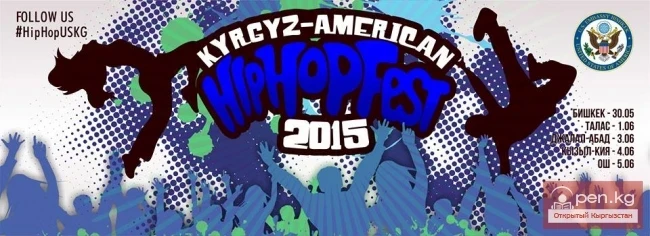
Kyrgyz-American Hip-Hop Fest 2015
From May 28 to June 5, 2015, a youth festival "Kyrgyz-American Hip-Hop Fest 2015" will...
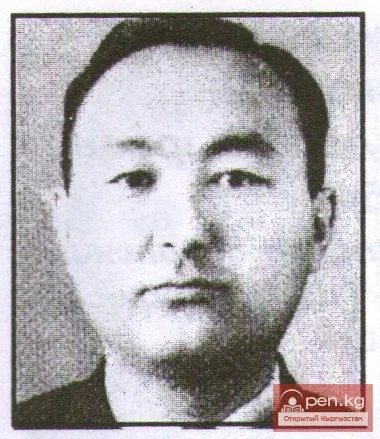
Dzhumagulov Sulayman (1923-1998)
Dzhumagulov Sulayman (1923-1998), Candidate of Philosophical Sciences (1968), Professor (1991)....
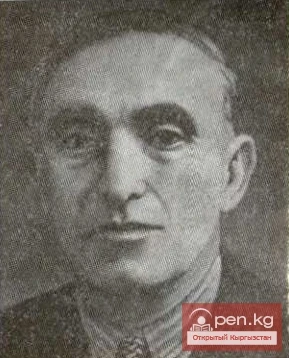
Kulte Mark Alekseevich
Kulte Mark Alekseevich Film director. Born on April 25, 1896, in the city of Bakhchisarai, Crimea,...
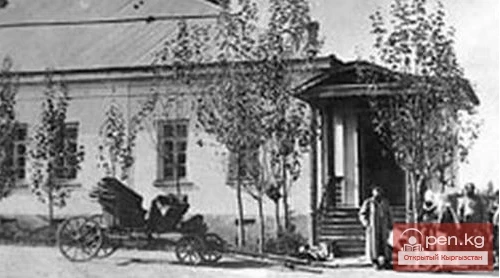
Report on the State of Healthcare in Pishpek. Document No. 55 (July 1923)
FROM THE REPORT OF THE HEAD OF THE HEALTH DEPARTMENT OF THE PISHPEK DISTRICT AT THE PLENARY...
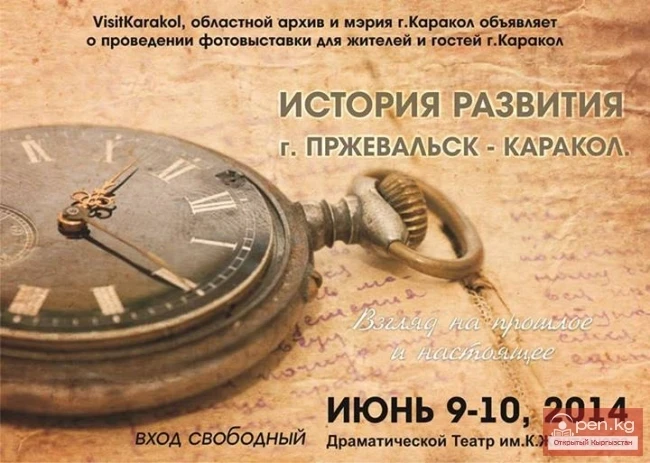
The History of the Development of Przhevalsk - Karakol. A Look at the Past and Present
Dear residents and guests of the city of Karakol, the "VisitKarakol" project, in...
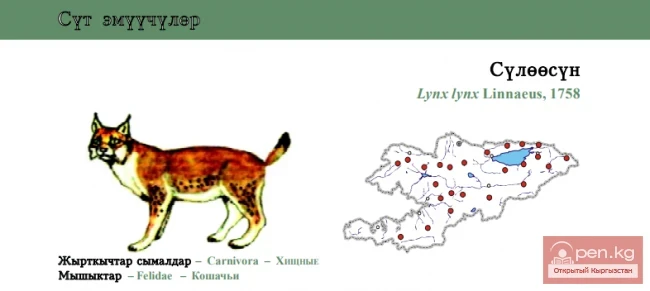
Lynx / Sulyoyosun / Eurasian Lynx
Lynx Status: V! category, Nearly Threatened, NT. A rare subspecies Lynx lynx isabellinus Blyth,...
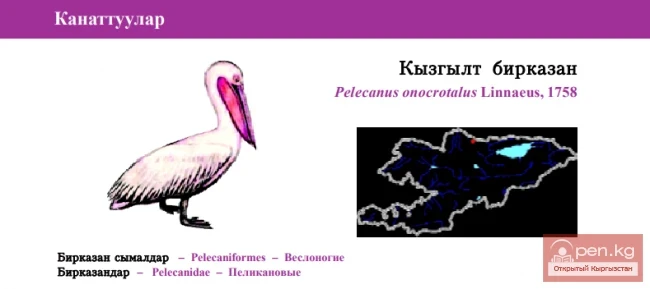
Pink Pelican / Kyzgylt Birqazan / Great White Pelican
Pink Pelican Status: VI category, Near Threatened, NT: R. One of 2 species of the genus, rarely...
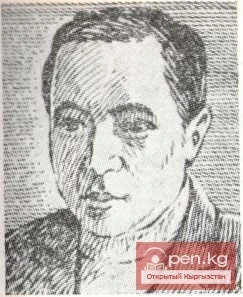
Critic, Literary Scholar Kalim Rakhmatullin
Critic and literary scholar K. Rakhmatullin was born in 1903 in the city of Tokmak, now in the...
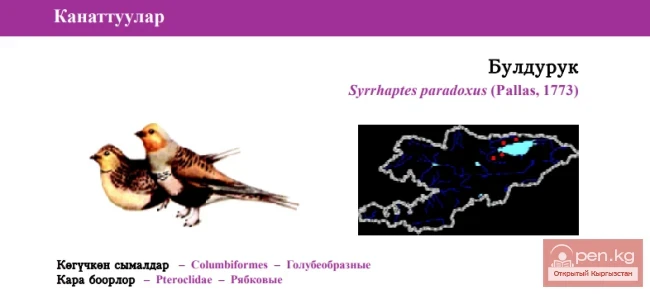
Saja / Bulduk / Pallas’s Sandgrouse
Sadzha Status: V category, Vulnerable, VU: R, Monotypic species....
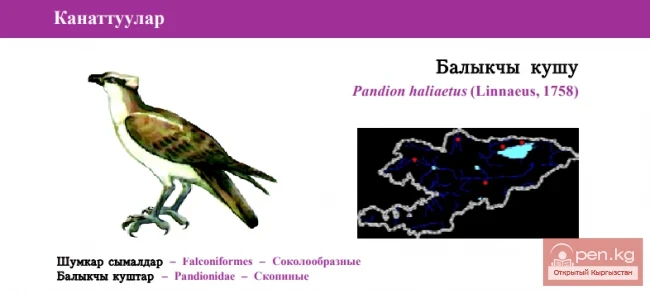
Sakpa / Balıkçı Kushu / Osprey
Osprey Status: Category VII, Least Concern, LC. A representative of a monotypic family and genus...
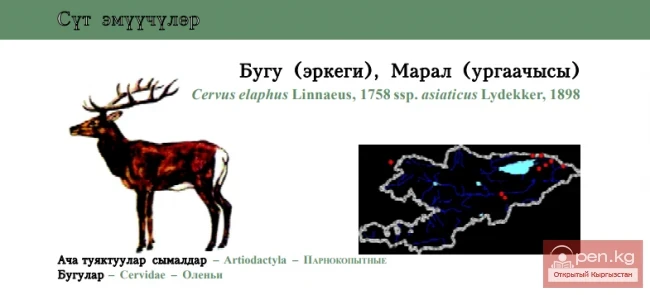
Noble Deer (Tien Shan subspecies), Maral / Bugu (male), Maral (female) / Asiatic Red Deer, Tien Shan Maral, Tien Shan stag
Noble deer (Tien Shan subspecies), Maral Status: Category IV, Endangered, EN C2a(i): R. A sharply...
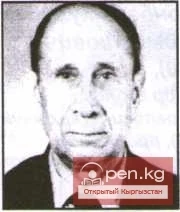
Bleshinsky Stanislav Vladimirovich (1919)
Bleshinskiy Stanislav Vladimirovich (1919), Doctor of Chemical Sciences (1966), Professor (1967),...
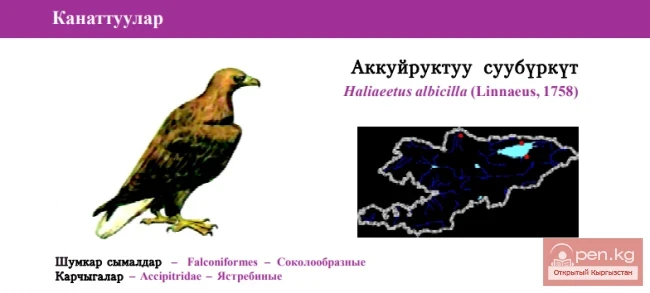
White-tailed Eagle \ Aquila chrysaetos
White-tailed Eagle Status: Category VI, Nearly Threatened, NT. A rare bird with a declining...
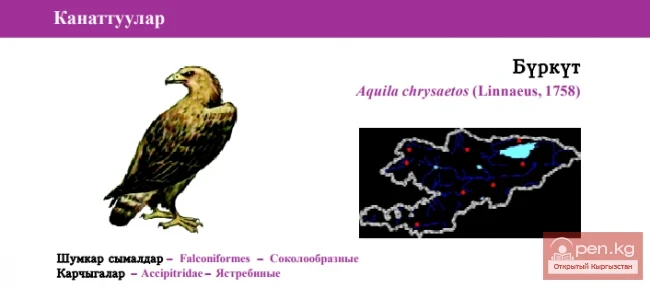
Berkut \ Burkut \ Golden Eagle
Berkut Status: VI category, Near Threatened, NT: R. One of four species of the genus in the fauna...
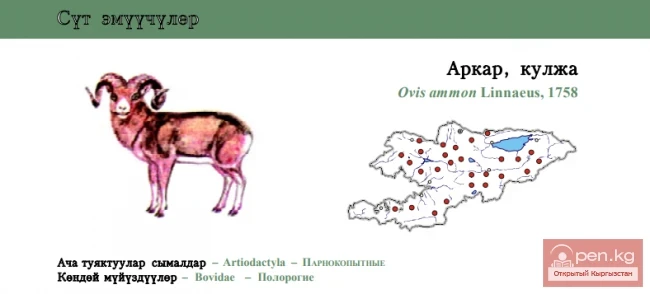
Mountain sheep / Argali, kulja / Argali
Mountain Ram Status: Three subspecies with different statuses inhabit the territory of the...
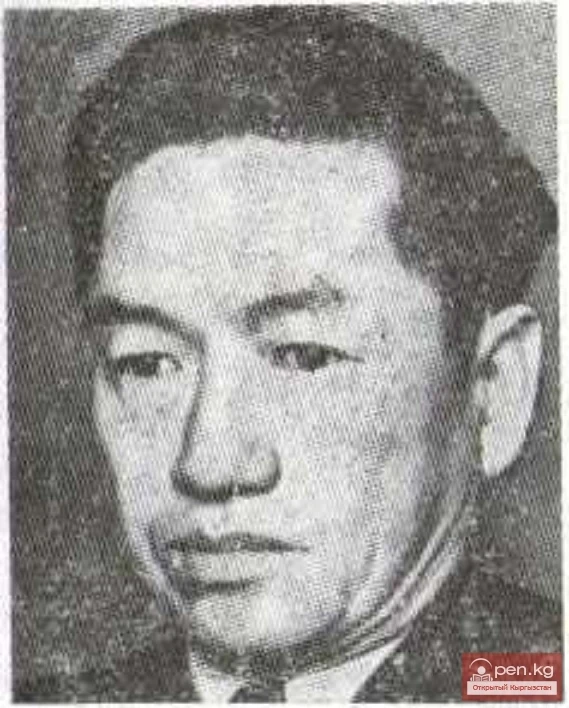
Translator, Prose Writer Abdukayimov Uzakbay
Translator and prose writer U. Abdulkayimov was born in 1909 and died on September 12, 1963, in...
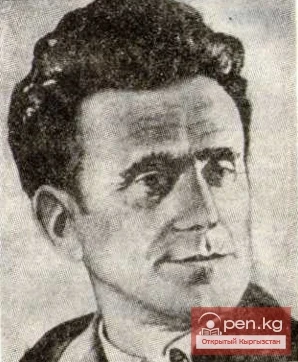
Erdman Dmitry Ivanovich
Erdman Dmitry Ivanovich Film director. Honored Artist of the Kyrgyz SSR (1962). Member of the...
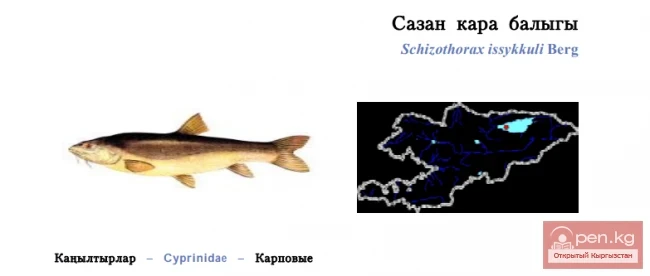
Issyk-Kul Marinka / Carp Fish / Issyk-Kul Marinka
Issyk-Kul Marinka Status: 2 [EN: D]. A rare taxon inhabiting Lake Issyk-Kul. Its...
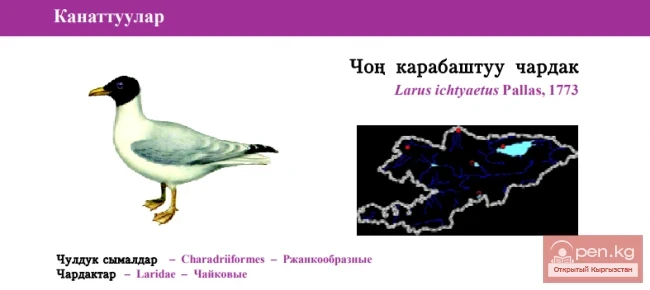
Black-headed Gull / Great Black-headed Gull
Great Black-headed Gull Status: VI, Near Threatened, NT: R. One of 6 species of the genus in the...

Administration in Kyrgyzstan within the USSR (1917-1991)
The establishment of Soviet power and statehood in Kyrgyzstan began after the October Revolution...
Kyrgyz Republic - This is Our Land
The Kyrgyz Republic is a country of Heavenly Mountains, stunning nature, and hospitable,...
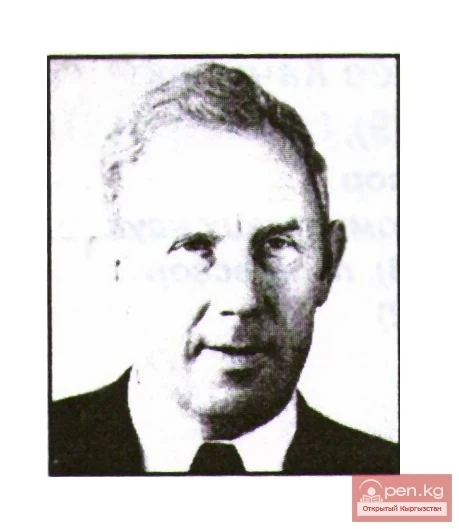
Oleg Dmitrievich Alimov (1923)
Alimov Oleg Dmitrievich (1923), Doctor of Technical Sciences (1959), Professor (1961), Academician...
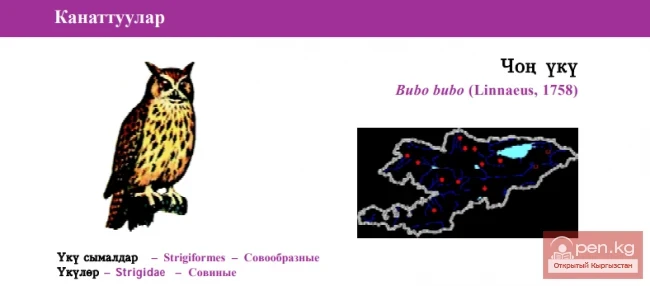
Eurasian Eagle-Owl / Chon Uku / Owl
Eurasian Eagle-Owl Status: VII, Least Concern, LC. In Kyrgyzstan, Bubo bubo hemachalanus Hume,...
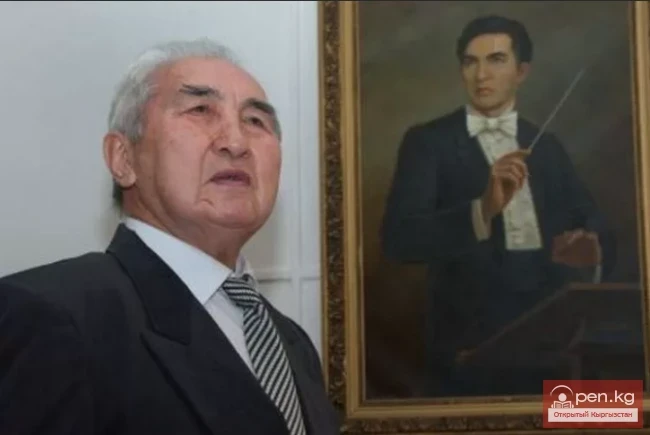
Hero of the Kyrgyz Republic Jumakhmatov Asankhan Jumakhmatovich
Asankhan Jumakhmatov (1923—2008) — Soviet Kyrgyz conductor, music educator. People's Artist...
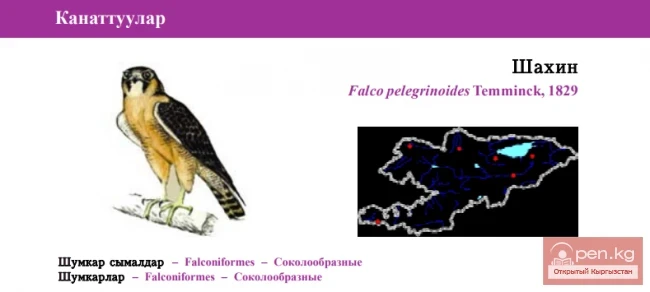
Red-headed Falcon / Shaheen / Barbary Falcon
Barbary Falcon Status: Category III, Critically Endangered, CR: R. Kyrgyz ornithologists believe...
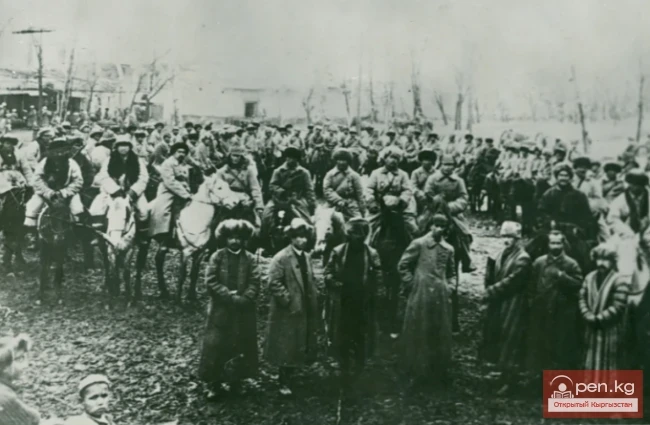
The Plight of the Kyrgyz in 1918. A Letter to V.I. Lenin
The Kyrgyz in 1918 The unification of the city council in Pishpek and in other cities of the...
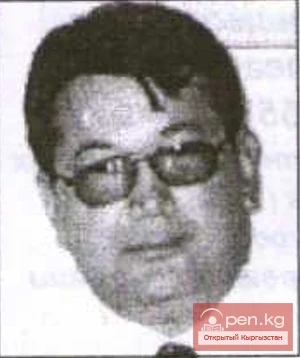
Kasybekov Erkinbek Shaktybekovich
Kasybekov Erkinbek Shaktybekovich (1963), Doctor of Biological Sciences (2002) Kyrgyz. Born in...
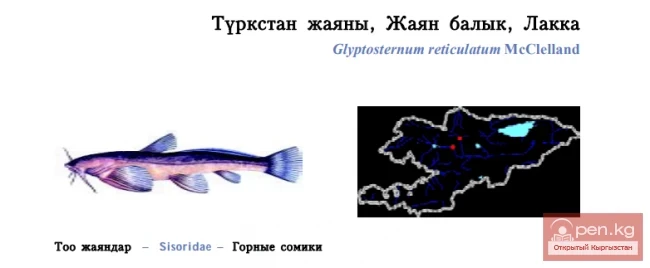
Turkestan Catfish / Turkestan Zhayany, Zhayany Fish, Lakka
Turkestan Catfish Status: 2 [VU: E]. The only representative of the genus in Kyrgyzstan....
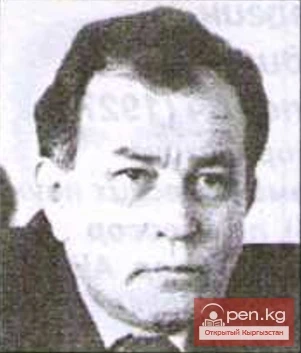
Konurbayev Erik Omurzakovich
Konurbayev Erik Omurzakovich (1934), Doctor of Biological Sciences (1974), Professor (1978)...
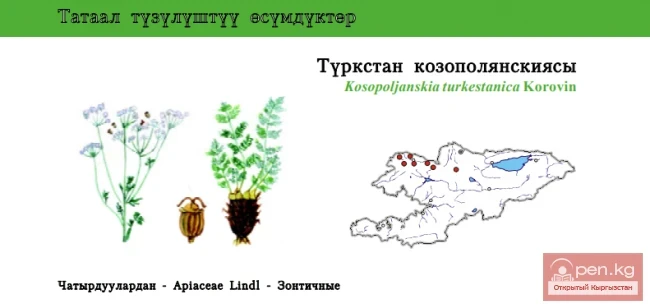
Kosopolyan Turkestan / Turkestan Kosopoljanskia
Kosopoljanskaya Turkestanian Status: VU. One of the two endemic species of this genus found in...

Rest at Issyk-Kul
Taxi to the Issyk-Kul Coast Transfer prices for 2018: Transfer Bishkek-Issyk-Kul Sedan (1-4...
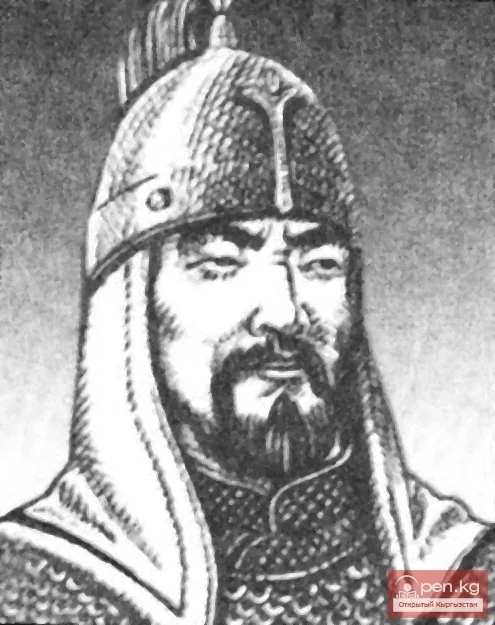
Tagai Bi (Muhammed Kyrgyz)
In the history of the 16th century, Tagay Bi was celebrated under the name of the great figure...
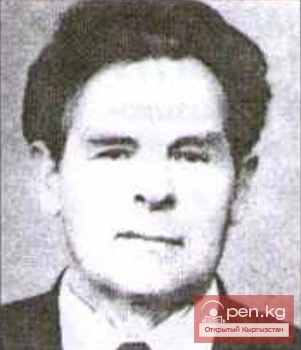
Aleksey Alexandrovich Sapelkin
Sapelkin Alexey Alexandrovich (1919), Doctor of Historical Sciences (1977) Russian. Born in the...
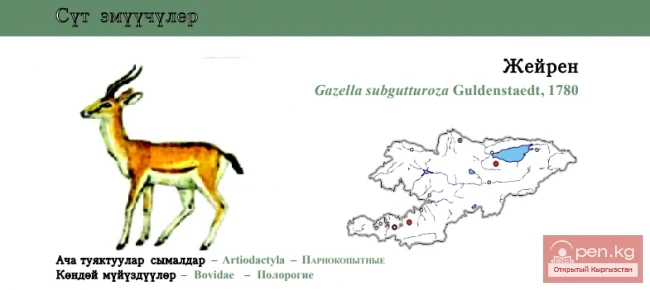
Jayran / Zheiren / Goitered gazelle
Dzhayran Status: Category III, Critically Endangered, CR: R, Cl. An endangered or possibly extinct...
